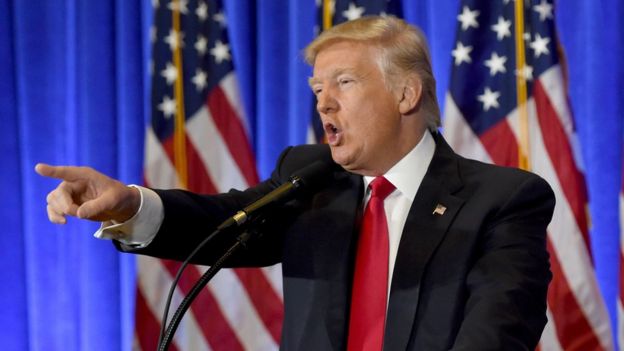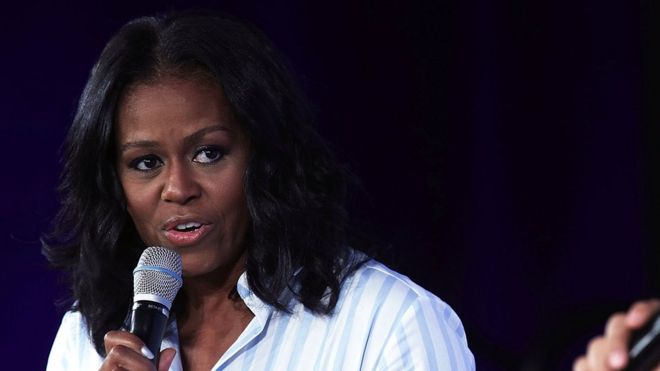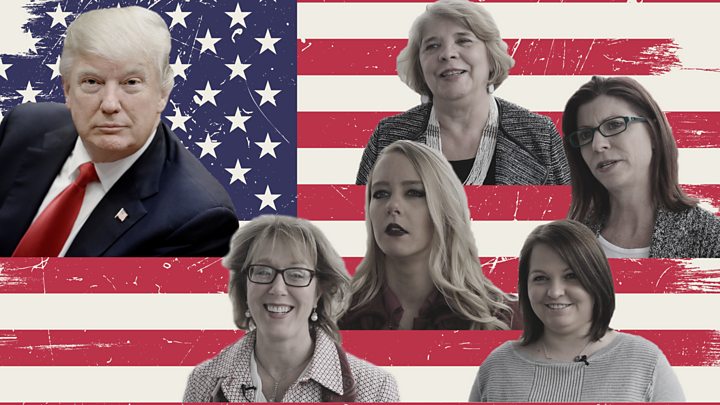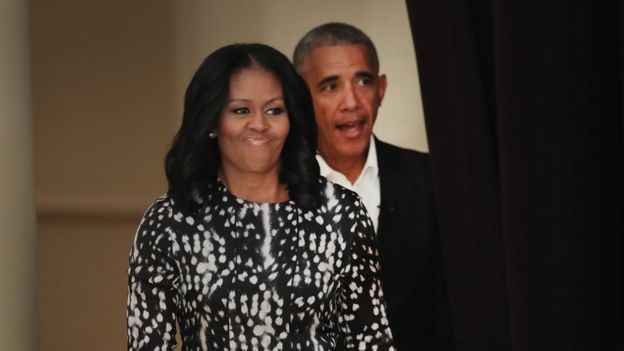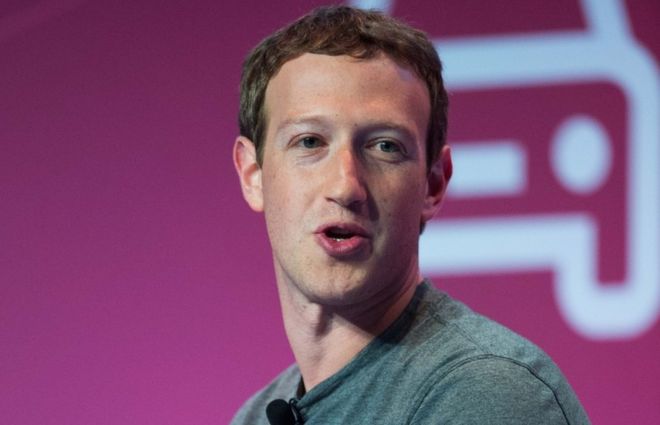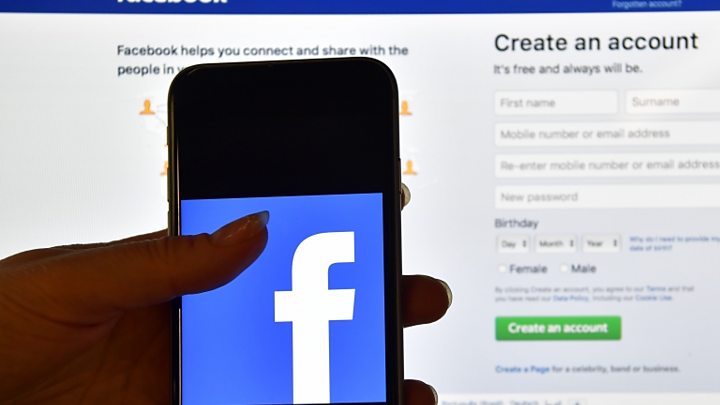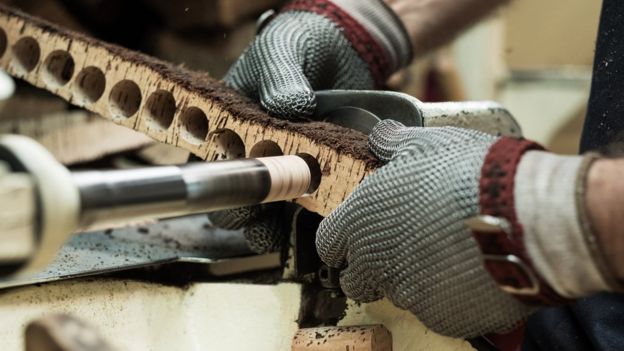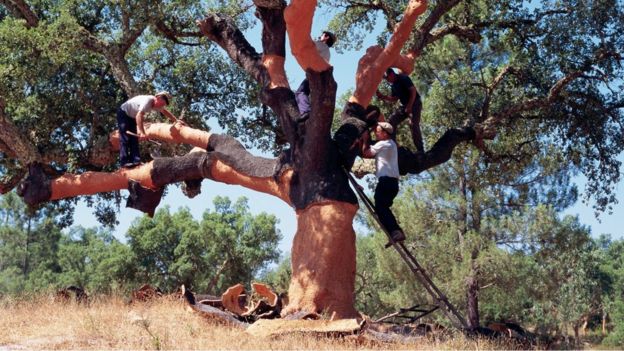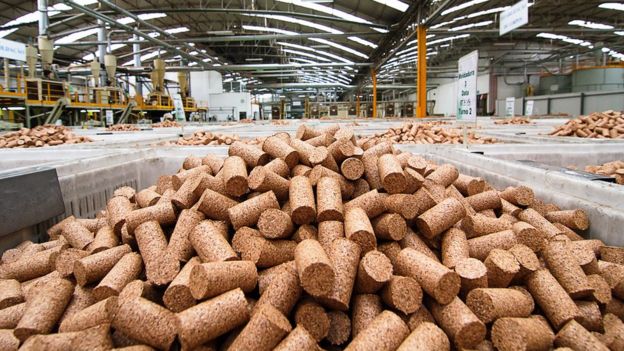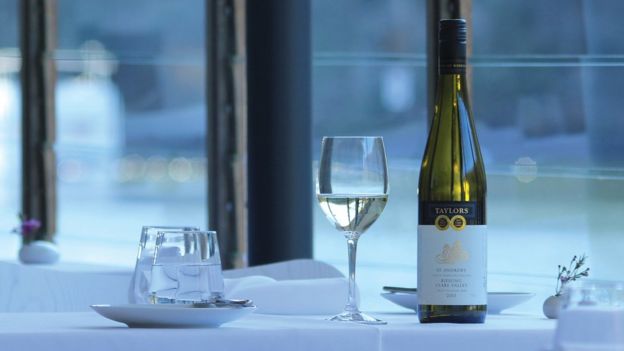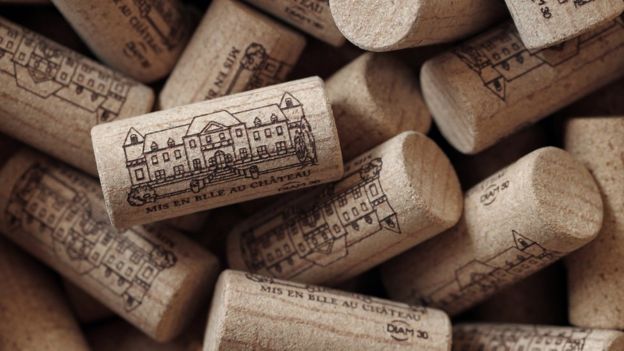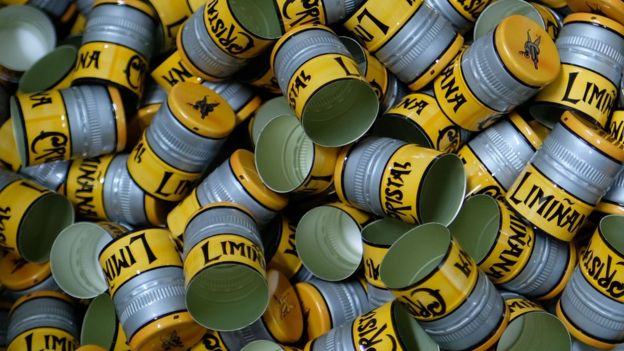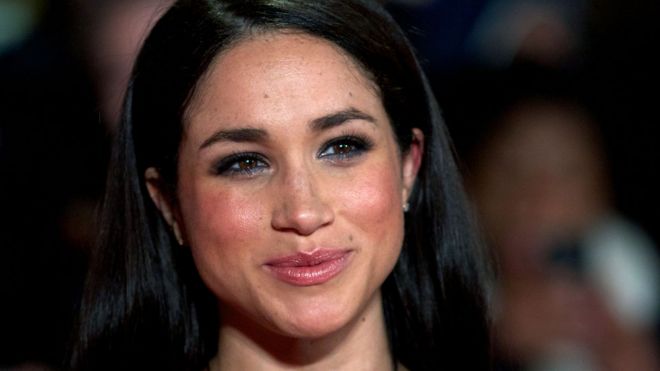 GETTY IMAGES
GETTY IMAGES
Pictures of Prince Harry's first public appearance with Meghan Markle in Toronto were beamed around the world this week and put his American girlfriend firmly in the spotlight.
Tough. Troubled. Gang-scarred.
If you read the British tabloid press you would think the actress grew up in LA's notorious gang culture and was lucky to escape a life of crime.
But Prince Harry's girlfriend attended some of the best private schools in the city and her mother's current home is in a storied, hillside neighbourhood marked by palm trees, stunning views and million-dollar homes.
When one newspaper dubbed Markle "(Almost) Straight Outta Compton" last year, there was an outcry.
A week later, the royal family issued a rare public statement denouncing the "racist" and "sexist" commentary about Ms Markle, whose mother is African American.
But Markle's mother lives in the View Park-Windsor Hills neighbourhood, which is one of the wealthiest, primarily African American areas in the US.
It is one of a handful of hillside areas known as the "Black Beverly Hills" and was recently listed on the National Register of Historic Places. The median price of a home there is $771,000.
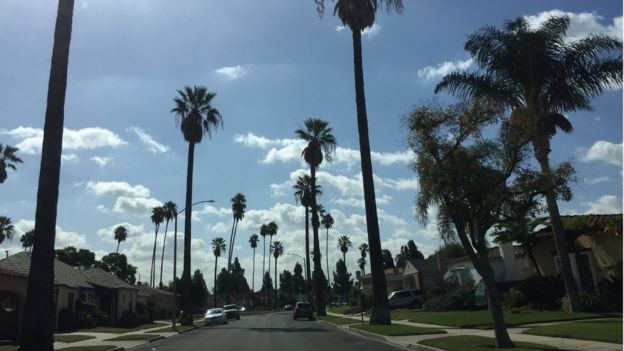
Her mother's green two-bedroom home is landscaped with California native plants and two "No Trespassing" signs - perhaps a message to the paparazzi, which converged there when the royal relationship was first confirmed.
The house is in the hills above Crenshaw, which has had trouble with gangs, but the notion that Prince Harry might not be safe visiting is laughable.
But far from being stung by the tabloid criticism, the owner of the Los Angeles Sentinel newspaper based in Crenshaw prefers to focus on the romance of the story.
"First of all it's a beautiful thing - a young woman finding love whether it's with a prince or a pauper," says Danny Bakewell, who is also a civil rights activist and entrepreneur.
"This is a great family community, a very nurturing community. All you have to do is walk the area - it's bustling."
Mr Bakewell does not know the Markles but says he expects his newspaper will write about the couple in the coming weeks.
And he invites critics of Crenshaw to pay a visit.
"Casting aspersions on where her parents live or where she grew up - the majesty of the woman is in who she is and how she conducts herself," he said. "Obviously she has something that makes her princess-like."
Prince Harry himself complained about the media coverage of the Markle family and some local journalists agree it crossed a line.
"There's been a lot of loaded language and race-baiting language about Meghan," said Smriti Mundhra, the entertainment editor at BET.com, which recently speculated about the possibility of Britain's "First Black Princess."
"Crenshaw was once an epicentre of gang activity but the crime rates have dropped significantly," says Mundhra. "It's ridiculous to say Prince Harry would be in danger there."
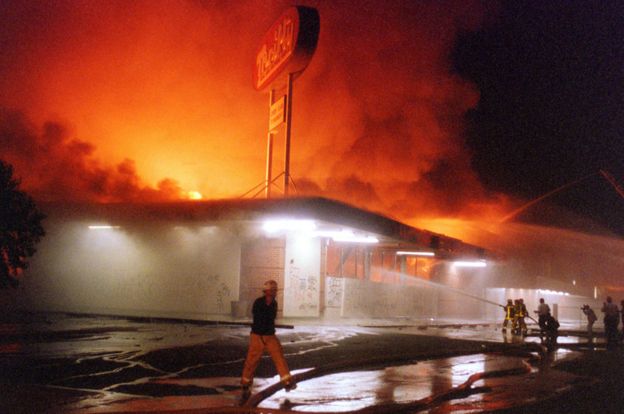 GETTY IMAGES
GETTY IMAGES
Although Markle, 36, now lives in Toronto where she films the TV legal drama, Suits, and she is spending a lot more time in Kensington with Prince Harry, she clearly longs for her hometown.
On social media and her recently closed lifestyle website, The Tig, Ms Markle often pines for LA's sunshine and tacos. She also writes about strong women.
"I've never wanted to be a lady who lunches - I've always wanted to be a woman who works," she said.
In View Park, neighbours were surprised to hear of the royal connection. "Meghan who?" was a common response, as they walked their dogs or exercised.
"Do you think the Queen would ever visit?" one woman asked. "Wouldn't that be something?"
A 19-year-old woman named Antonia said: "I've heard of her but I didn't know she lived around here."
Americans in British political history
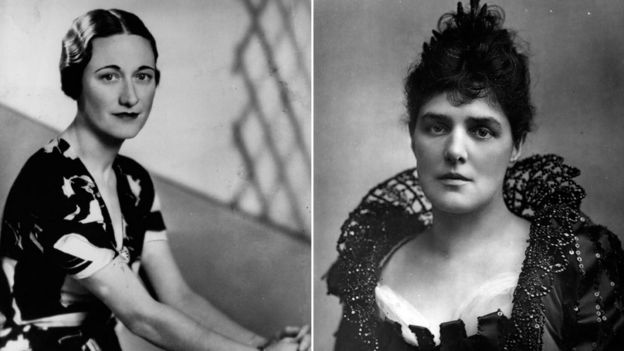 GETTY IMAGES
GETTY IMAGES- King Edward VIII abdicated for the woman he loved, Wallis Simpson, who was born in Baltimore
- New York-born Jennie Jerome was only 19 when she met Randolph Churchill but they fell in love and got engaged three days later
It's not surprising that Meghan Markle isn't a household name in View Park or Crenshaw.
Her childhood in Los Angeles was more centred in Hollywood, where she attended a private primary school known for having a fabulous swimming pool as well as a playground.
And her father was a cinematographer on the show Married… with Children, which was a hit in the 1980s and 1990s.
Her parents, who divorced when Markle was six, met on the set of a soap opera, where her father was a lighting director and her mother was temping before becoming a social worker and a yoga instructor.
Markle attended a private, all-girls Catholic high school on a beautiful campus in the Hollywood Hills. The school requires public service to graduate and the actress credits her parents and the school with starting her commitment to humanitarian work.

